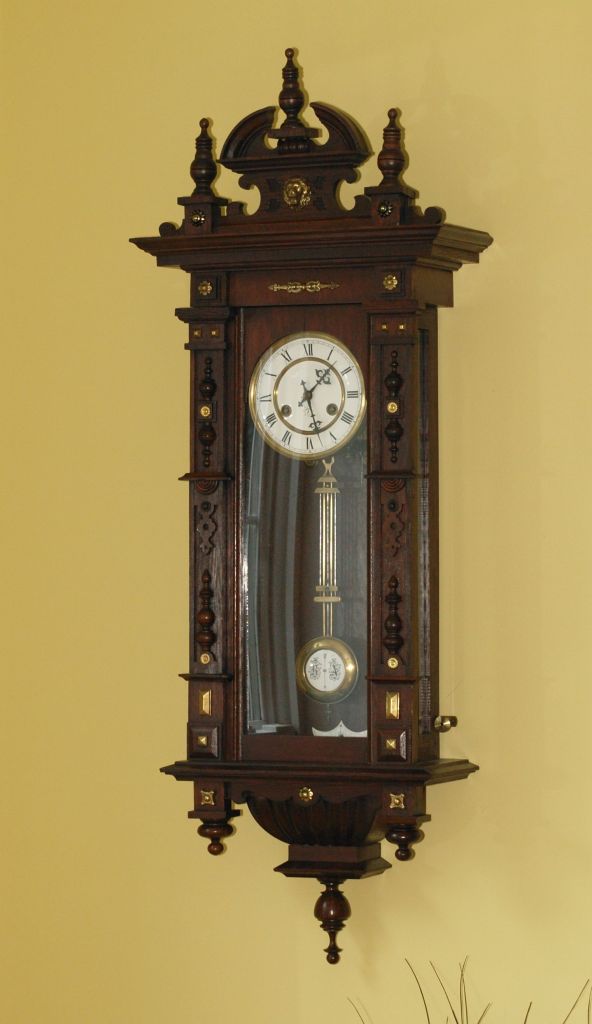There is a peculiar phenomena happening in the clock world today and that is tumbling clock prices. French cartelle clocks, American jewelers regulators, original E. Howard and Willard banjo clocks to name a few have retained their value but clocks that would have sold for hundreds of dollars a few short years ago can be had for almost nothing today. It is not a great sellers market.

Prices will not rise any time soon as modern generations have been conditioned to discarding old for new irrespective of merit and in contradiction to the ideology that recycling saves the planet
Why are clock prices so low?
I have acquired some very nice clocks for ridiculously low prices. While it is part luck there is ample evidence that recent clock prices have never been lower.
There are so many clocks that no one seems to want. Gingerbreads, school house clocks, mantel clocks, Ogees (30 hour or one-day especially), calendar clocks and most garden variety clocks go for very low prices. Good for collectors, not so good for sellers. Prices will not rise any time soon as modern generations have been conditioned to discarding old for new irrespective of merit and in contradiction to the ideology that recycling saves the planet.
Millennials are also facing a very different world than I and my contemporaries faced. Factory work or clerical positions are now considered a good job and young people are staying with mom and dad living in their old rooms as they try to pay off mortgage size student loans. Under those circumstances you will not consider buying a tall case clock or an 18th century French clock.
Thanks but I have no place to put one
My generation (I am in my 60s) did not typically have mechanical clocks in their homes (aside from Grandfather and cuckoo clocks), so younger people today do not have those kind of memories to inspire nostalgia. In my day mechanical clocks were thrown in the trash when they wore out to make way for the electric clock. For young people today the old clocks we loved are not in their sights for purchase. An offer to gift a clock to a millennial is often met with the reply, “Thanks but I have no place to put one” and of course, winding it is always a hassle. A visit to any antique store or clock fair says it all when observations show the average age of visitors and traders are often in their “senior” years.

Prices of clocks really did not begin their rise in value (at least in North America) until the mid to late ’50’s. Since then and up until the late nineties many ordinary clocks commanded high prices. Since the year 2000, the economy has been spiraling downward. Paralleling the declining economy is the decline of prices for antiques of all types. The at-times spectacular and troubling declines in real estate values, increasing unemployment and fewer discretionary dollars have all had an deleterious effect on dropping clock values. With the up-tick in the economy perhaps things will change
I collect clocks and other antiques for interest and history alone
I collect clocks and other antiques for interest alone and only those I can afford which often means that I will try to buy a clock for as little as possible. Collecting in this way allows me the comfort in knowing that there is no worry about future rises or drops in value. I acquire clocks simply because I want them, and pay a price that is worth it to me. If I see something that I do not have, it is unique or has some historical value and it is a reasonable price (to me), I will buy it.
However, many of us collectors are aging and downsizing. Few are in buying mode and many want to sell. The result is a glut of often lesser quality clocks that were once bought at higher prices.

Unless you are prepared to learn how to repair or somehow care for an old mechanical clock you are faced with the prospect that the cost of repair far exceeds the value of the clock. Sentimental reasons always trump repair costs but the message from the clock repair person with integrity is clear, “keep it, it is not worth the cost of repairing”.
Will prices get better? Prices for antiques and collectibles is cyclical and chances are that they will go up again.

I enjoyed reading this post, Ron, and I realized that I also collect stamps only for interest & historical value. In the end, collecting is about you like the most, about you can affort to own, but also about what brings you satisfaction. Catalin
LikeLike
Thanks Catalin. Many like you and I appreciate our hobbies for what they are and will adjust to prices whether they are high or low
LikeLiked by 1 person
Alas being 71 I have found the collecting the “old” wind up, wooden clocks magical The craftsmanship and complex movement captivating. Started with the electrics but faded fast from estate sales of antique wall and mantel clocks getting familiar with names . My kids give me a deer in headlights when I tell them what do you do when no batteries and no electricity to tell time?? On line auction estate sales I have found remarkable finds for on the “cheap “My Saint Charles was hidden behind a door so no one found It, it is now on the wall with my other 5 timepieces.
LikeLike
Like you I find fascinating deals on local online for sale sites. Perhaps one day there will be a resurgence. Thanks for coming to my blog.
LikeLike